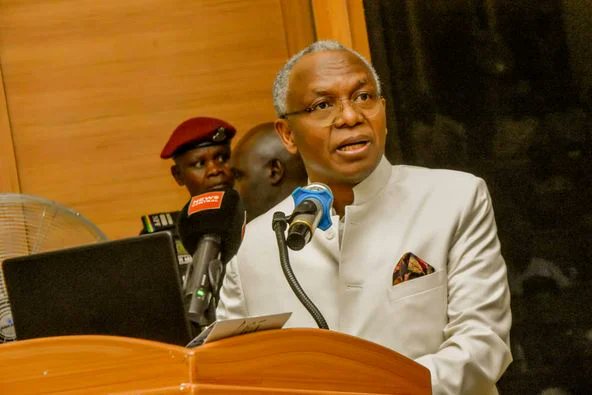Nasir el-Rufai, former governor of Kaduna, says electronic voting is the surest way to credible and transparent elections in the country.
Speaking at an interactive session on Friday in Owerri, the capital of Imo state, el-Rufai said electronic voting and real-time transmission of results would tackle electoral malpractices, restore public trust in Nigeria’s elections, and strengthen democratic stability.
The former Kaduna governor expressed concern over the low voter turnout in the recent elections, saying Nigeria must build trust in the electoral process and promote citizen participation.
“Given our stormy history, 25 years of unbroken rule by elected governments indicates that our country is on a pathway to democratic stability. But voter turnout at presidential elections has been declining since 2007,” he said.
“Less than 30% of registered voters bothered to vote in 2023, down from over 60% in 2003. Also, the integrity of every presidential election result from 1999 to date has been challenged in the courts, except in 2015 when President Goodluck Jonathan personally and commendably chose not to.”
El-Rufai said low voter turnout should worry every democrat because when the electorate feels alienated from the political process, it could lead to “unwelcome fragility”.
“We should try to ascertain what could encourage them to resume exercising that fundamental democratic right. This, in my view, should also include measures to assure them that the election process is free from threats of violence or coercion, while ensuring that the results would accurately reflect the preferences expressed by voters at the ballot box,” he said.
“Can we not agree to say farewell to electoral malfeasance and any appearance of it by adopting electronic voting and real-time transmission of results to collation points without interference?
The African Democratic Congress (ADC) coalition member said he does not see “any compelling argument or unbridgeable barrier to adopting electronic voting and transmission of results for the 2027 elections”.
El-Rufai, who introduced electronic voting in Kaduna during the 2018 and 2021 local government elections — the first state to do so — said INEC should learn from that experience and deploy the system nationwide in 2027.
“I believe there is adequate time today for INEC to acquire and deploy the hard and soft infrastructure needed to deliver this for the entire country at a much lower lifecycle cost than the current, unreliable system that has repeatedly been subject to human manipulation,” el-Rufai said.
He said the country can adopt electronic voting machines that are designed and configured to do at least five functions: integrate the simultaneous identification and verification of the voter, provide a paper trail of votes cast at every polling unit, shut down the system at the predetermined deadline, provide a printout of the polling unit result for each party agent, presiding officer, the media and the security agencies, and seamlessly transmit the polling unit results on the conclusion of voting.
“It is a question of how eager we are to make our elections fully transparent and the level of ambition we wish to apply towards strengthening democratic stability,” he said.
El-Rufai said that when he conducted electronic voting as governor, the ruling party lost some local government councils, and it accepted the outcome.
He said the weaknesses in the electronic voting machine process deployed in Kaduna can be identified and eliminated, and the design robustly strengthened for a national rollout within months, if the political will exists to do so.




